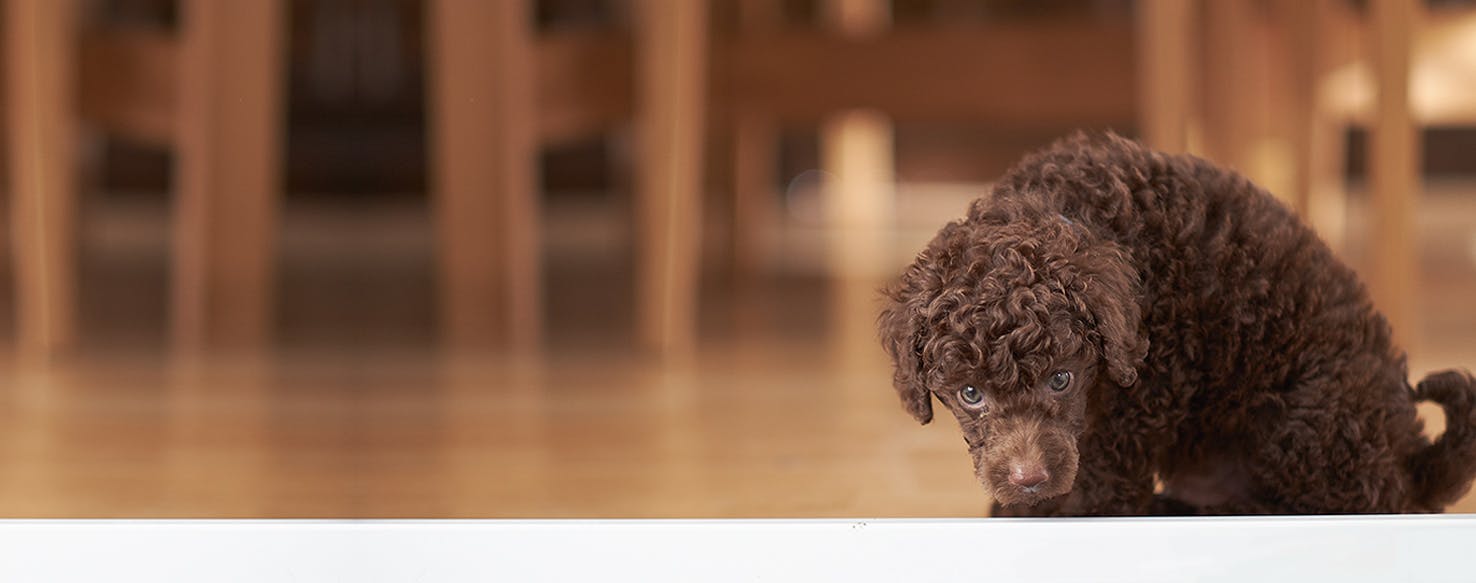- Home
- The Daily Wag!
- Senses
- Can Dogs Smell Bacteria?
Can Dogs Smell Bacteria?

Introduction
The fact that your dog has one of the most powerful noses to walk this Earth doesn't exactly come as surprising. Researchers have used dogs to smell out cancers and diabetes, search and rescue teams have used dogs to sniff out missing persons, and narcotics agents have used dogs to smell out drugs. Because dogs have been able to use their superpower to conquer the world, it should be understandable that your pup can smell specific bacteria as well.
For a more in-depth view of dog-sniffing capabilities, read on! We've got all you need to know about how dogs sensory receptors work and information on how you can train your dog to smell out bacteria. Enjoy!
Signs Dogs Can Smell Bacteria
As of 2018, the widespread use of antibiotics has been responsible for problems associated with "superbug" infections. These superbug infections usually occur in patients who are already in the hospital for other medical reasons.
One of the most common and dangerous superbug infection is called Clostridium difficile ("C. difficile"). C. difficile most commonly affects the elderly who have recently been treated with antibiotics in the hospital. The antibiotics kill off the normal helpful bacteria in the intestines all the while C. difficile takes over.
C. difficile releases toxins which cause a number of symptoms including diarrhea, fever, nausea, loss of appetite, and even can cause stomach ulcers. Research shows that about seven percent of infected individuals will die within 30 days. Even more startling, C. difficile was listed as a cause contributing to death of around 21,000 people per year in America.
Because of C. difficile's drug resistance, antibiotic treatment can be difficult to commence. As antibiotic use has increased over the years, so has the prevalence of C. difficile. Hospitals usually use ultraviolet light to find this bacteria, but recent studies have shown that dogs can actually move much more quickly and efficiently with each patient, allowing the area to be disinfected almost immediately.
Body Language
Doctors, as you will read below, have been able to successfully use dogs to detect infection in humans. Some signs that your dog has detected bacteria may include:
- Alert
- Sniffing
- Tail Up
- Ears Up
Other Signs
Other signs may include:
- Stopping Dead In Their Tracks
- Anxious Behavior
- Eyeing Something
The Science Behind Dogs Smelling Bacteria
Dogs have about 25 times more smell receptors in their noses than us humans do. This means that dogs can smell concentrations at about 100 million times lower than human beings can. Even cooler, about 15 million of your pup's sense detectors have infrared detection, too
As death from bacteria was on the rise, researcher Marije Bomers took the idea that dogs should be able to detect bacteria and ran with it. In the Netherlands, Marije Bomers and a team of researchers focused on training a Beagle named Cliff to identify C. difficile. They began with stool samples and were able to teach Cliff to identify scents that change in body chemistry when individuals are infected.
Cliff was trained to sit or lie down when he detected this bacteria. Cliff's detection abilities were formally tested about two months later on 100 C. difficile stool samples. Cliff was able to correctly identify all of the 50 C. difficile positive samples and 47 of the 50 negative still samples. Researchers took cliff to two hospital wards to test his nose on live patients. Cliff correctly identified 25 out of 30 cases and 265 out of 270 negative controls. Having proven that a dog can detect C. difficile, the researchers reported their findings, and Cliff, the Beagle, was retired.
Two years later, there happened to be an outbreak of C. difficile at a hospital in Amsterdam. Cliff was then put to the ultimate test - screening patients susceptible to C. difficile while they were in the hospital being treated for other conditions. Ultimately, Cliff correctly identified 12 out of 14 patients with C. difficile infections and 346 out of 357 infection-free patients.
This study confirms that a trained detection dog can accurately detect C. difficile in hospitalized patients during an outbreak, and other trainers have copied Marije Bomers' methods. This efficient diagnosis of infected individuals can allow hospitals to isolate and treat them effectively before it spreads to the immediate population. As French poet Alphonse de Lamartine once said, "When man is in trouble, God sends him a dog."
Training Your Dog to Smell Bacteria
In a Canadian hospital, trainers have managed to teach Angus, an English Springer Spaniel, the methods of Cliff to help save lives. Angus was trained engaging in the same techniques used to train dogs to detect bombs or drugs. Angus' trainer describes the training as a game: “All of the detection work for the dogs, it’s just a game. To them, it’s just a way to get what they really want, which is their toy or their food, depending on what they’re rewarded with.”
Dogs are able to associate scents with food rewards. Angus' hospital staff has kept her stocked with a steady supply of C. difficile scents on cotton swabs, in addition to rewards for correct identification. Angus' training took about 10 months. After working through detection tests with mock patient wards, Angus was brought into Canadian hospitals in the summer of 2017.
If this is something you want to test out in your own pup, contact an animal behaviorist of professional trainer.
Have questions or concerns about your pet?
Chat with a veterinary professional in the Wag! app 24/7.
Get Vet ChatWritten by Olivia Gerth
Veterinary reviewed by:
Published: 04/11/2018, edited: 04/06/2020
More articles by Olivia Gerth
